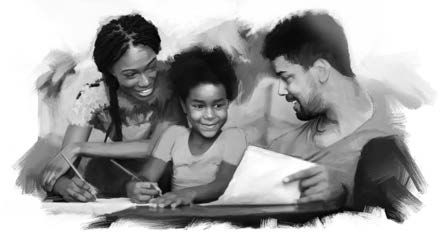Ettienne McClintock, 51, wasn’t taking anything for granted in Ethiopia.
The 3ABN Australia radio host was preaching in Shisho, a rural town located 20 miles (35 kilometers) from Awassa, the second-biggest city in Ethiopia, as part of 2019 Total Member Involvement meetings organized by the East-Central Africa Division. Electricity was intermittent, and he spent the first two nights presenting in the dark.
Despite the technical challenges, more than four hundred people were attending the outdoor meetings. The crowd was far bigger than the church could handle, and Ettienne was preaching from a makeshift shelter with plastic sheets for a roof.
Ettienne was worried as he prepared for the third meeting. Although a rented generator provided power, rain began to fall just 30 minutes before opening time. He hoped people wouldn’t be deterred from attending.
The rain stopped by the beginning of the meeting, but rain clouds filled the sky. Ettienne was barely 15 minutes into his sermon when the rain started. As the downpour intensified, people left the meeting. Although Ettienne had some protection in his makeshift shelter, his audience was sitting in the open air. “The church elders and I had prayed for the rain to stay away, and now the rain had come back,” Ettienne recalled. “We had to do something. But what?”
Suddenly it came to him. Every evening, he had been sharing about God’s power over sickness, sin, and death. But God also had power over the weather. He could pray for the rain to stop. But what if God chose not to stop the rain? His message would lose credibility, and people might stop attending.
At that moment, 1 John 5:14 flashed into Ettienne’s mind: “Now this is the confidence that we have in Him, that if we ask anything according to His will, He hears us” (NKJV).
Ettienne prayed silently, “Lord, I believe, but please help my unbelief.”
Through his interpreter, he invited the audience to pray with him for the rain to stop. Moments after he said, “Amen,” the rain stopped. It didn’t rain again for the rest of the program. After the sermon, about two hundred people came to the front to ask for prayer. “There were people kneeling everywhere,” Ettienne said. “As we knelt in the dirt, we prayed a prayer of thanksgiving and dedication to God.”
Seeing half of the audience kneeling on the ground, Ettienne remembered his family and friends praying for his meetings in Australia. He thanked God for their prayers. “God gave me a new experience,” he said. “Up until that point in my life, I took low risks for God with low rewards. This was a high risk that made me feel uncomfortable and vulnerable, but the reward was amazing.”

